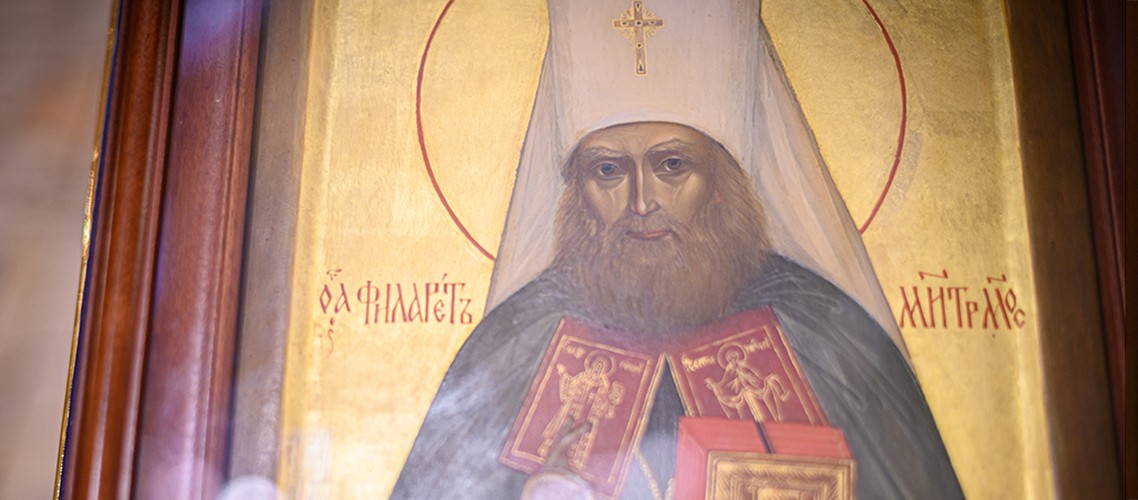
The Academy honored the memory of St. Philaret, Metropolitan of Moscow, a heavenly patron of the Moscow theological schools
On that day, the academic family gathered at the Intercession Academic Church to honor St. Philaret, Metropolitan of Moscow, a heavenly patron of the Moscow Theological Academy.
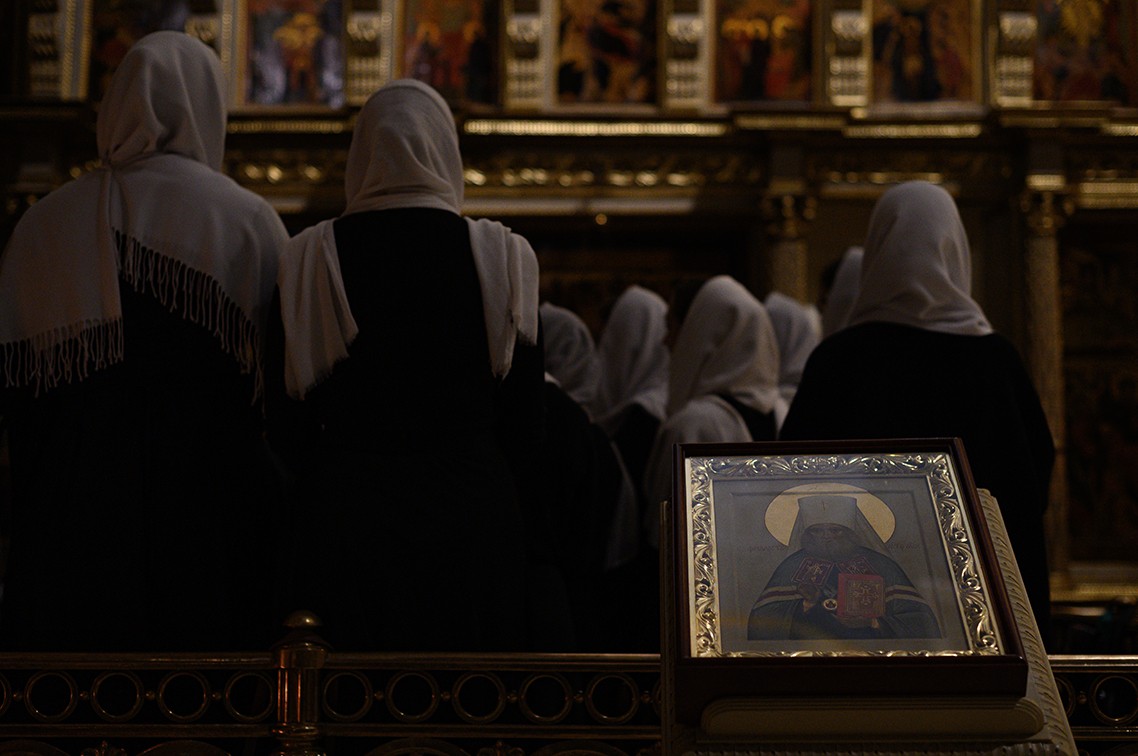
Thanks to his incredible talent for preaching he was called the Moscow Chrysostom. He also was an outstanding theologian and a scholar of the Holy Scriptures. His strictness was surprisingly combined with love and respect for others. That colossal period of 46 years, when he headed the Moscow Diocese, is known in the history of the Russian Church as the “Philaret’s era”.
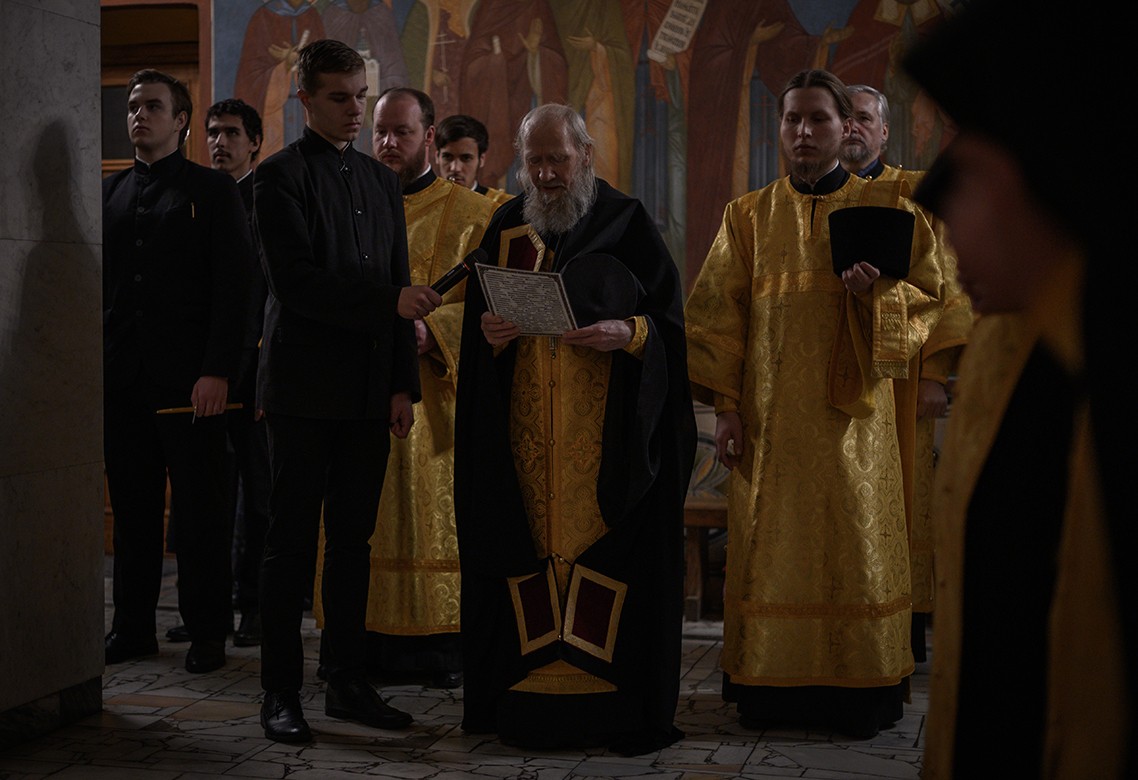
On December 1, Archimandrite Platon (Igumnov) officiated an All-night Vigil at the Intercession Academic Church co-served by teachers and students in the priesthood.
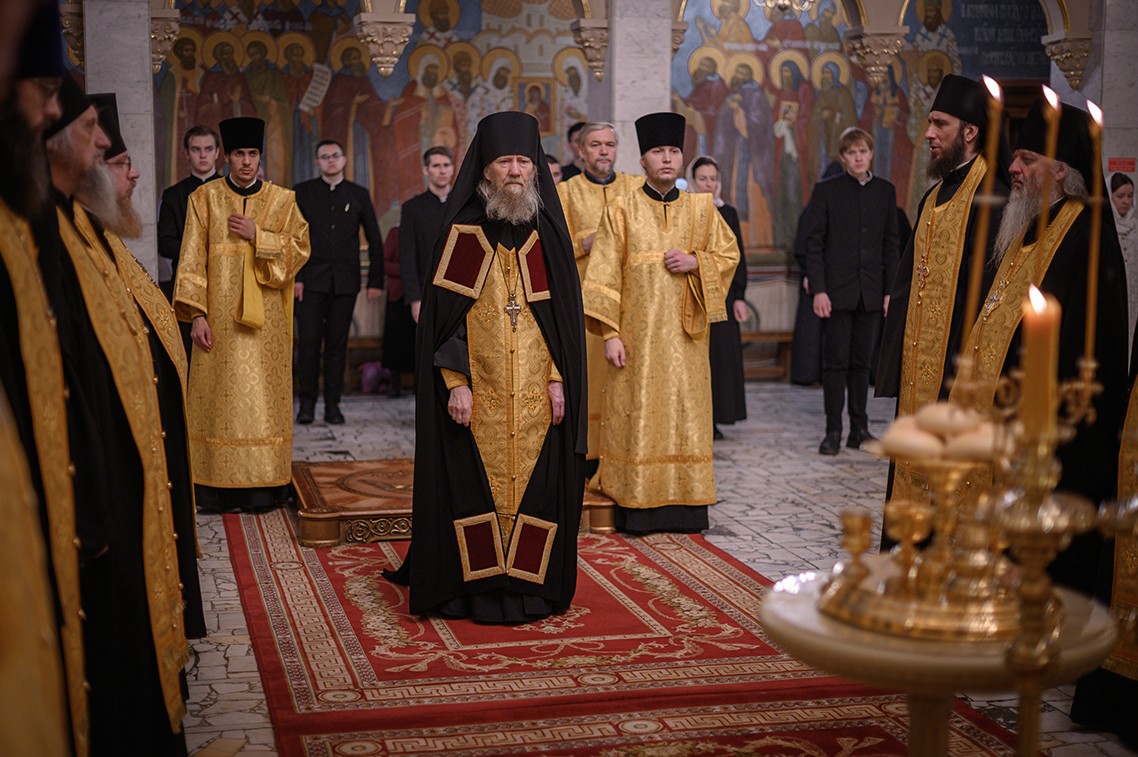
At the Great Vespers, Archimandrite Platon performed a festive litany and offered a prayer to the Lord for the consecration of bread.
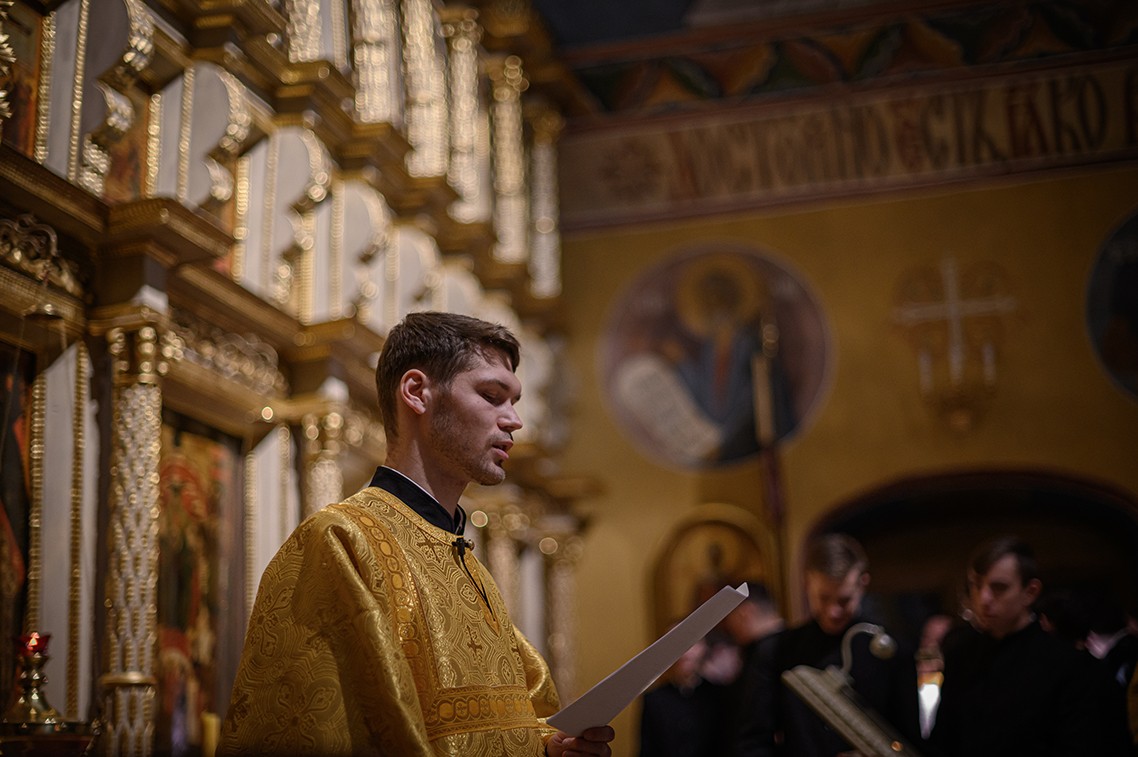
Before the Kathisma, Daniil Danilov, a fourth-year undergraduate student, delivered a sermon.
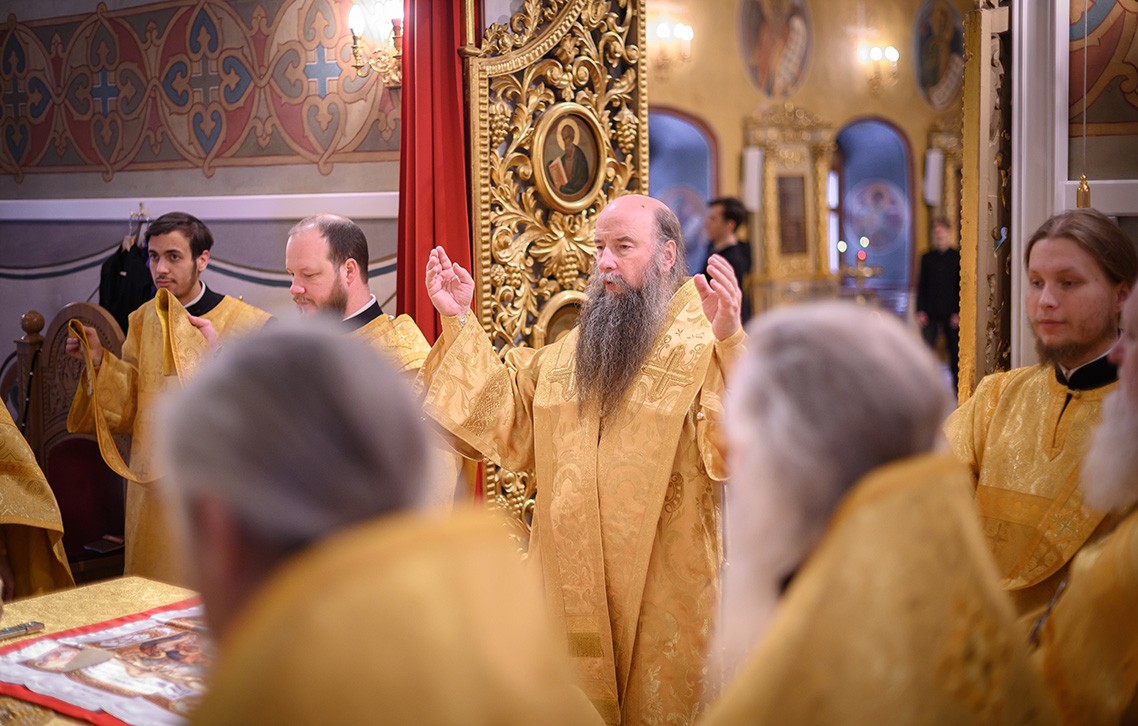
On December 2, teachers and students gathered for a common prayer at the Intercession Church.
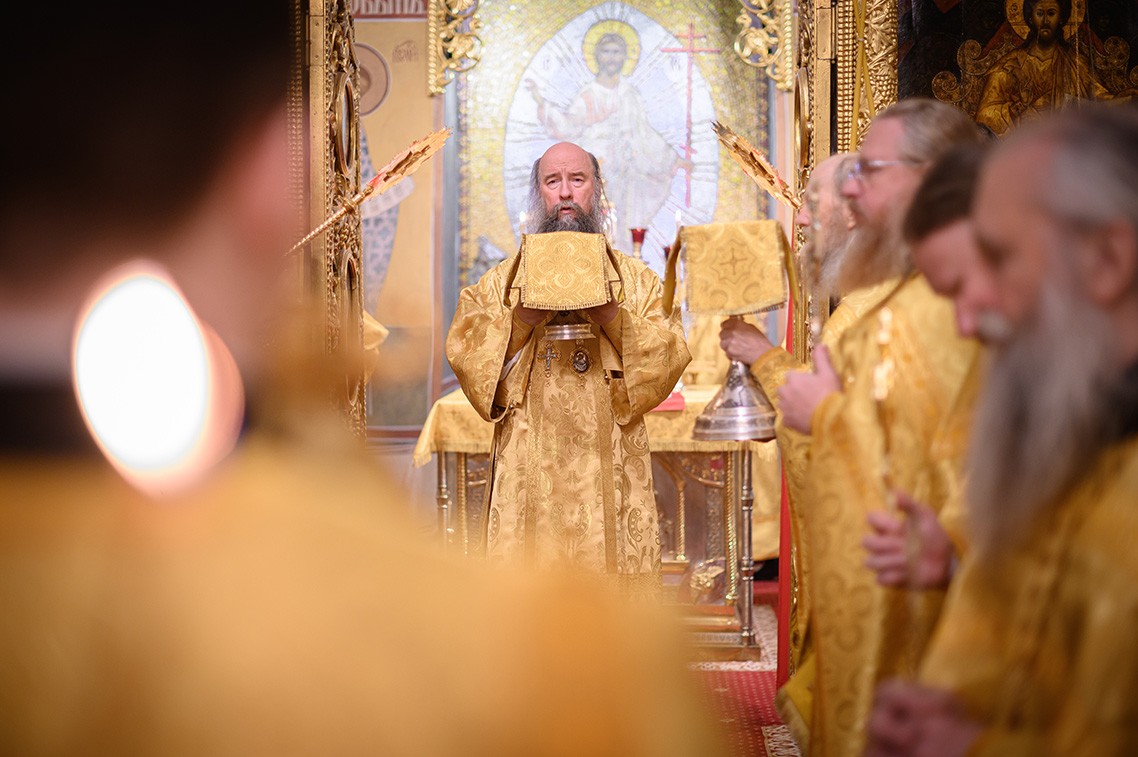
The Bishop of Sergiev Posad and Dmitrov Kirill, Rector of the Moscow Theological Academy, celebrated the Divine Liturgy co-served by the academic clergy.

Before the Communion, Hierodeacon Grigory (Trofimov), a second-year Master's student, delivered a sermon.
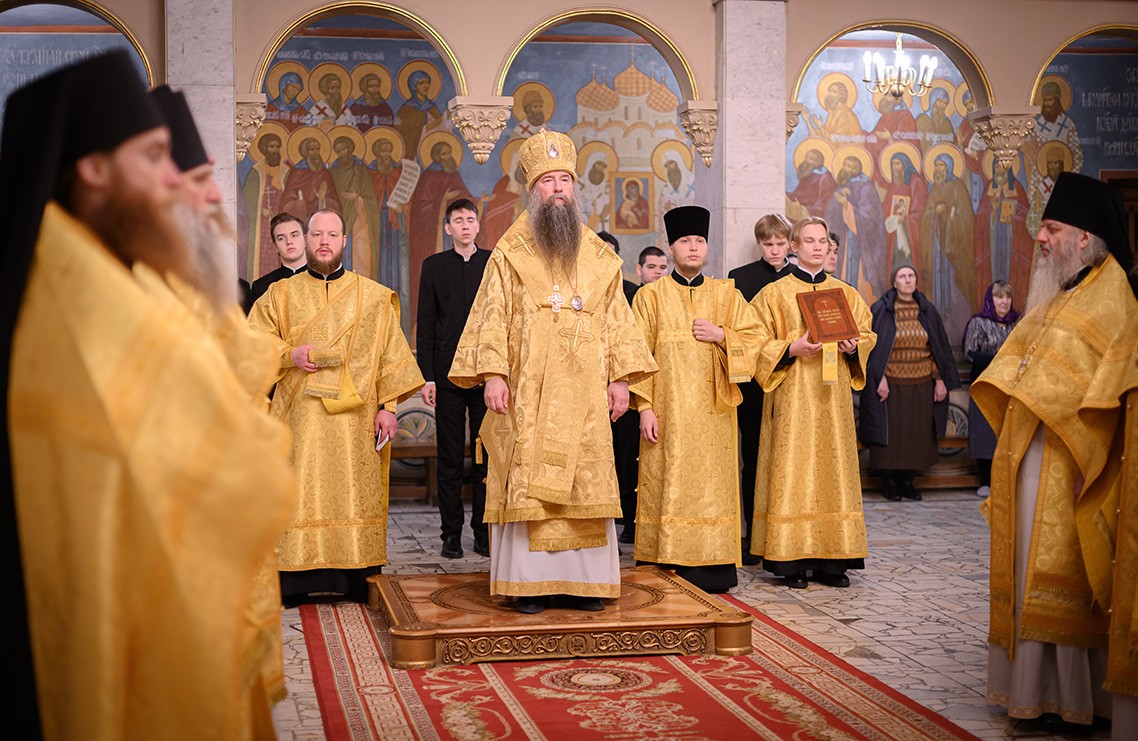
After the prayer behind the ambo, the clergy sang the glorification to St. Philaret.
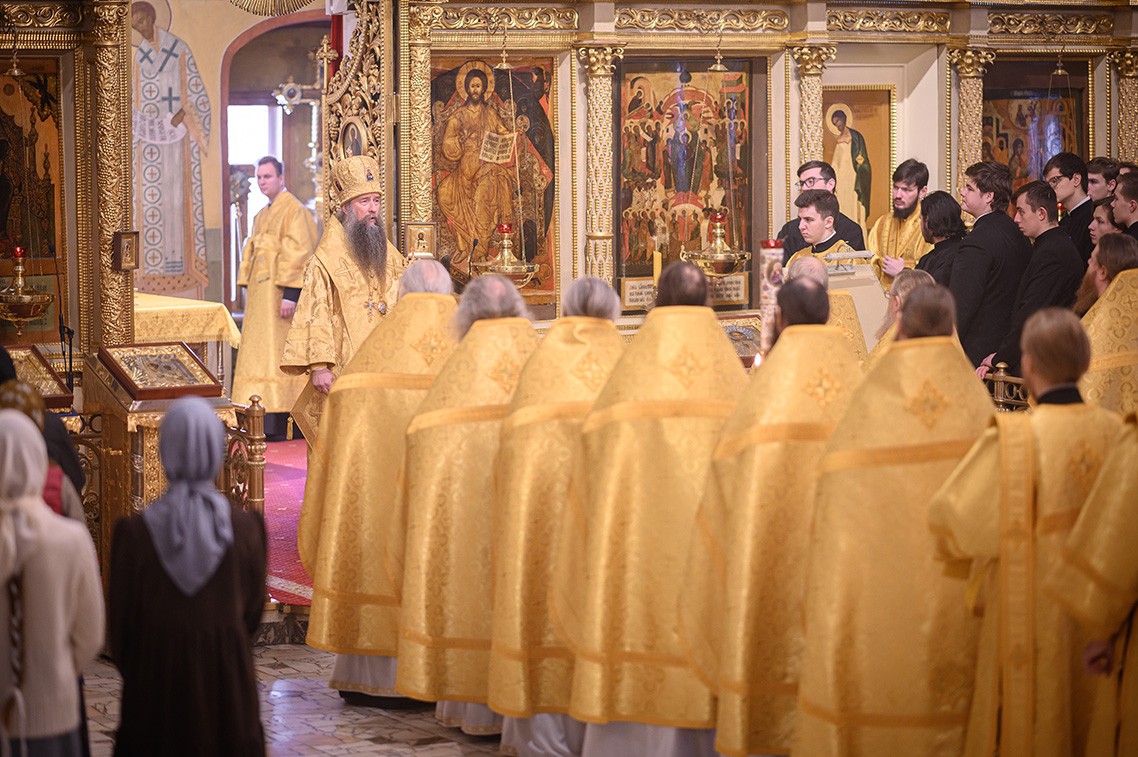
After the Liturgy, Bishop Kirill addressed an assembly with his archpastoral word:
In the name of the Father and the Son and the Holy Spirit!
Dear fathers, brothers and sisters, today is a memory day of St. Philaret, Metropolitan of Moscow, who was an abbot of our holy monastery and a benefactor of the Moscow Theological Academy. So great and constant was his concern for our theological school that it was customary to call it the “Philaret’s Academy.”
St. Philaret is well-known for his exploits and labors, instructions and teachings. Today we will only briefly remember that his life is an example for the clergy and archpastors. Looking at his attitude, so he was often perceived as a strict and self-contained man, we must learn to reason and check the information that someone conveys to us. To add something to his portrait, let’s say that St. Philaret was very strict, first of all, to himself. Moreover, if we read his correspondence with St. Anthony of Radonezh, Abbot of the Holy Trinity St. Sergius Lavra in the XIX century, we will find a completely different testimony given by St. Anthony. St. Philaret showed an example of the spiritual separation between a sin and a blamed person. Showing intolerance towards the sin, he felt long-suffering and mercy towards the man.
It is also worth mentioning St. Philaret’s great diligence in various fields such as Theology, Holy Scripture, Patristics, Church canon law as well as his work in managing the Moscow diocese and the Lavra. There were four Lavra skits, which were established at his time like the Gethsemane, the Chernigov, the Holy Spirit of the Comforter (Paraclitus), the Bogolyubskaya icon of the Mother of God. Let us also notice his humility. St. Philaret mentions in his letters, “I look at many priests, how arrogant they are. I, having been a bishop for several decades now, often feel the need to consult with the students of my students, with the priests who serve in the field, and I am surprised how others, being younger and much less experienced, do not consider it necessary to consult with someone more experienced, not speaking about the younger ones, to consult.” He chose St. Anthony of Radonezh as his spiritual father and, despite his low level of schooling, he trusted his opinion very much. You also need to pay attention to the spiritual life of the Saint. Following St. Basil the Great, he more than once emphasized that what is important before God does not have any ranks and titles or hierarchical degrees, but love for Christ. He welcomed those people who sincerely strived for God.
Three weeks before his death, St. Philaret told St. Anthony that he had felt his death approaching and that at the same time he had had a certain premonition. It was the following: “I feel a great danger, a heavy dark cloud coming over Russia and our Church from the West.” As an enlightened and well-educated man, he had a hope for the reunification of Christians of the East and West. But at the end of his life, after he had had that revelation, the saint spoke about the danger from the West.
Back then, in the middle of the XIX century, he said that if you take all bad things from secular magazines published in a month and combine them, there would be such a stench that no incense would be able to drown it out. What can we say about today's media?
May God grant that thanks to St. Philaret’s prayers and our wisdom and patience will save our vision and hearing from the stench that, unfortunately, deluges the information space. By the grace of the Lord Jesus Christ, may our soul remain pure and alive forever and ever. Amen.
Background information:
Chanting performed by the first academic choir under the conduct of Ioann Kopyrin, a second-year undergraduate student, and the first mixed choir led by S.P. Borovinskaya.
MThA Press Office
